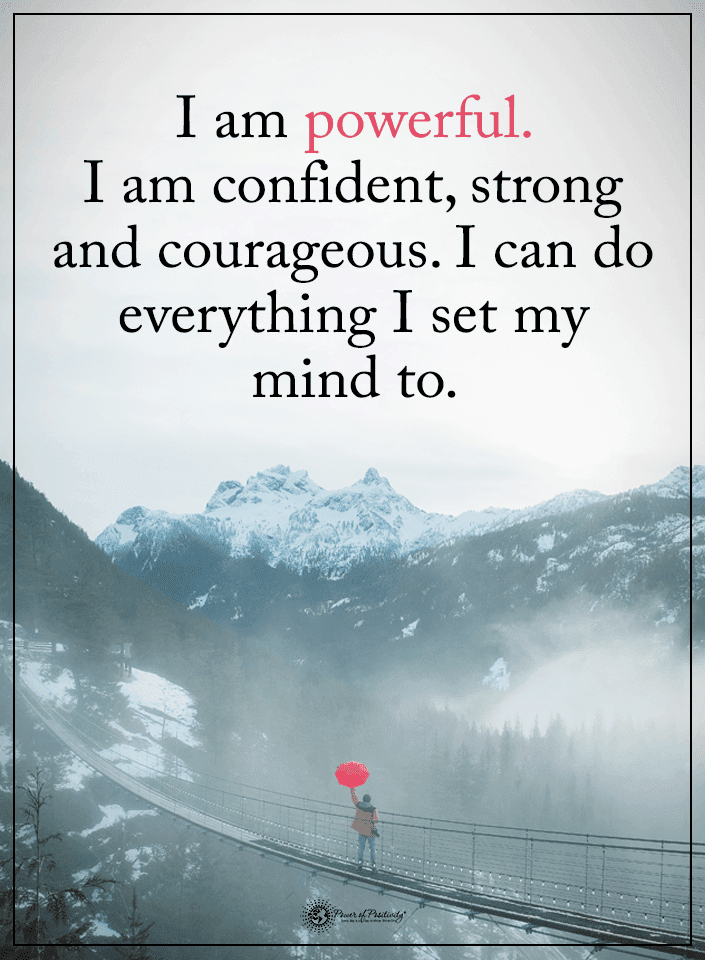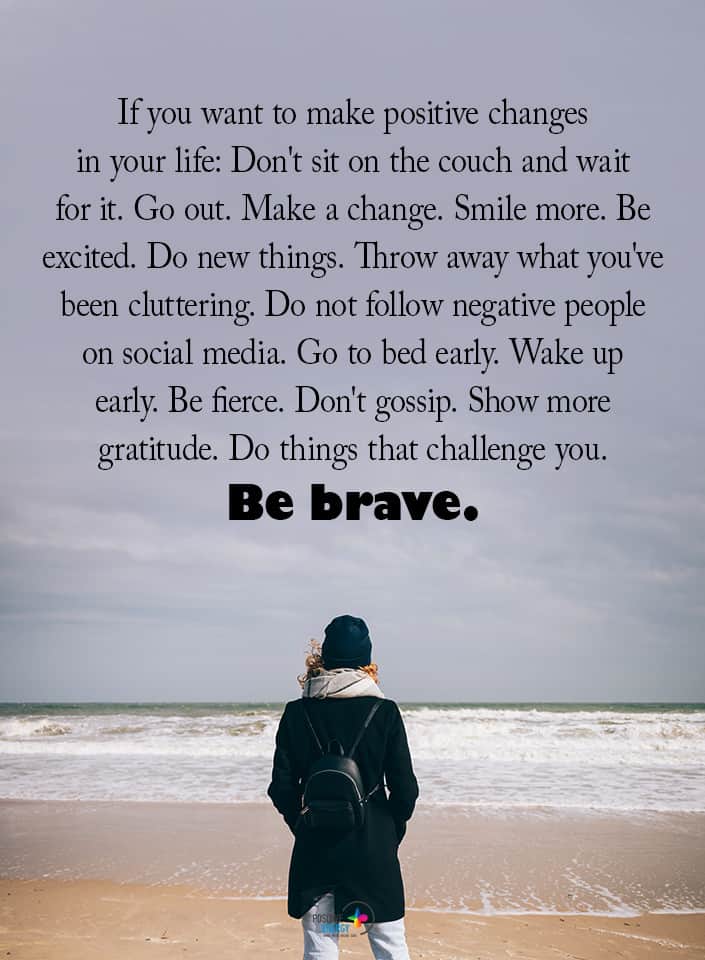Do you want to feel more confident–even when you doubt yourself?
Ever had one of those moments when you’re hit with the intense feeling of impostor syndrome? Some describe it as the feeling that you’re faking everything in your life and don’t feel good enough. It’s common in almost any professional environment. That uncertainty can sometimes get to you, no matter how positive you try to remain. However, there are ways to combat it. Sometimes, if you think you aren’t confident about something you have experience in, it’s all about positive thinking and convincing yourself that you’ve got it.
Science proves that the “fake it ’till you make it” method works in many facets of life. So, look at some ways to look like a pro, even if you’re not quite sure what you’re doing.
Here Are 8 Ways to Feel Confident, Even When You’re Not
“The most beautiful thing you can wear is confidence.” – Blake Lively.
1. Act Like You Own It
This is one of the most critical points. If you don’t know what you’re talking about, let other people believe you do. Avoid “empty” words such as “like” or “um” and control your talking speed. Look like a pro by keeping your voice even and authoritative. Please make sure everyone around you knows you’re the expert on whatever you’re talking about.
Most importantly, always think about what you’ll say before you say it. That way, you won’t get caught mumbling and stumbling over your own words, and it’ll be much easier to show you know what you’re doing.
2. Be sparing with your words
It’s a natural human reaction to seek validation for our actions. When we get caught up in this, we tend to babble a lot and get lost in our words. Try to avoid this as much as you can. Be one of the people who say a lot with few words. Besides, silence tends to make people at least slightly uncomfortable, so use it. Choosing your silence and your comments will make it seem like you’re fully confident and know exactly what’s happening.
3. Work on your critical learning skills
Knowledge is the best leverage you can have in any situation. Quick learners benefit from picking up on conversation points, rapidly synthesizing information, and forming an opinion. If you can, don’t be afraid to jump in with your topic. You’ll feel more confident, and no one will know you came up with it just a few minutes ago.
If you don’t have that ability, fill your free time with learning as much general knowledge and trivia as possible. You never know when it’s going to come in handy.
4. Stay positive
Has your boss asked you to do something you’re not quite sure how yet? Be honest yet optimistic about the outcome. Don’t just say “Yes,” because they will expect you to be an expert in it, and it’ll be hard for you to live up to their expectations. Instead, say something like, “I’m not quite sure how to do this, but I’ll put some research into it. Don’t worry. I’ll achieve those results.”
However, as we mentioned in point 2, please don’t overdo it in your response because you might come across as agitated and unsure about your abilities.
5. Don’t be confrontational
Many people think the best way to be confident is to prove someone wrong. That’s not necessarily true. Not many people look intelligent when they’re deep into an argument because the other person will constantly find something wrong with their points. In such a discussion, focus on trying to agree with the other person. It’s never easy, but when you try hard enough, you’ll see several points where you’ll find common ground.
Not only does that help show that you know what you’re talking about, but it also paints you as the bigger person who doesn’t let themselves be embroiled in petty fights.
6. Approach everything with a sense of humor
People are always attracted to someone who can make light of a difficult situation – even if they don’t quite realize it. Don’t take yourself too seriously and try to joke whenever appropriate. That way, you’ll show you’re not too bothered about making mistakes. This can lead people to conclude that you know more about your subject than you let on.
7. Stay humble but appear confident
Like a sense of humor, humility is another lovely quality in anyone. Don’t paint yourself as someone with a massive ego or can’t let other people have their place in the spotlight. If you stay on the down-low about your knowledge and keep it casual, it makes your intellect look even more believable.
8. Get the last word
That doesn’t mean stealing other people’s ideas. However, it has been proven that the person who speaks last in a conversation is usually the one who makes the biggest impression. Even if you have nothing important to say, rehash what has already been said and make a clear, concise summary to look like a pro and leave a good impression.
9. Inspire others
Be ready to inspire those around you in your community or at work. Your extra encouragement helps motivate and energize others. When you inspire others, it not only makes you feel more confident, but everyone feels good about their participation.
10. Be a good listener
Aim to be a good listener. Be aware of what others tell you. Look at them while they speak. Ask questions to clarify anything you don’t understand. Paying attention to what people say makes them feel heard by you. They’ll be likelier to share their ideas with you because they know you will listen.
11. Be a good communicator
You can feel confident as you strive to be a good communicator. Learn how to share your ideas effectively. Ask a trusted friend or colleague for input. Ask them:
- Did I share enough detail or too much detail?
- Was my explanation clear? How could I have explained it better?
- Were there words I used confusing?
- Did I talk too fast? Too slow?
12. Be a learner
Have the mindset that says there is always something to learn. Be open to learning from anyone, no matter their age or experience. Don’t wait for someone to initiate your learning at work or school. Allow your curiosity to motivate you to ask questions or do research. As you learn, you’ll feel more confident and knowledgeable.
13. Be ready to deal with conflict
Conflicts are inevitable. When they arise, be ready to resolve them humbly and purposefully. If you allow a conflict to stay unresolved, it’s likely to lead to bigger problems. Talk privately with the people involved in the conflict. Ask questions to get everyone’s perspective. Speak kindly to those involved and withhold judgment until you’ve heard the story. Resolve the conflict the best you can without labeling anyone. Keep the conflict private so those involved aren’t embarrassed or cast in a bad light.
14. Be ready to help
A confident person is someone willing to step up and help. No matter whether it’s at home, at school, or work, be ready to volunteer to take on extra tasks. Being willing to take on responsibilities shows leadership and a caring heart.
15. Be honest
Honesty is an important character quality. Dishonest individuals get a reputation for not being trustworthy. Your honesty assures those around you that you have their best interest in mind and are safe.
16. Be self-motivated
Being confident means, you are self-motivated. You don’t wait for others to initiate but begin the task. Self-motivated people are ambitious and have their energy.
17. Take responsibility
Confidence means you’re willing to take responsibility for your actions. If you say you’re going to do something, you do it. You’re on time for your meetings or classes. People know they can rely on you because you’ve established yourself as responsible.
18. Be a team player
Having a strong teamwork ethic gives you opportunities at work or school. You’re willing to collaborate with others. Good team player skills mean:
- You’re willing to follow other’s leadership
- You value other people’s opinions and ideas
- You take ownership of a project
- You’ll share your ideas humbly
- You don’t interrupt others when they talk
- You hold your suggestions lightly
19. Stay calm
Being confident means staying calm under pressure, whatever situation you’re in. Stressful situations show a person’s true character. Stay confident and poised, ready to help resolve the problem without getting stressed. Your calmness helps the people around you stay calm.
20. Be a problem solver
When there is a problem, be proactive in coming up with a solution. Don’t just point out the problem; be ready to brainstorm a solution. Being confident means you initiate the problem-solving task instead of waiting on someone else to do it.
Final Thoughts on Developing a Confident Vibe
Those are just some tips that can help you kick that annoying lack of confidence out of your life. Remember, no one’s 100% confident in what they’re doing at any time. Even if you don’t feel confident, you can make it seem like you do – and look great doing it.

















